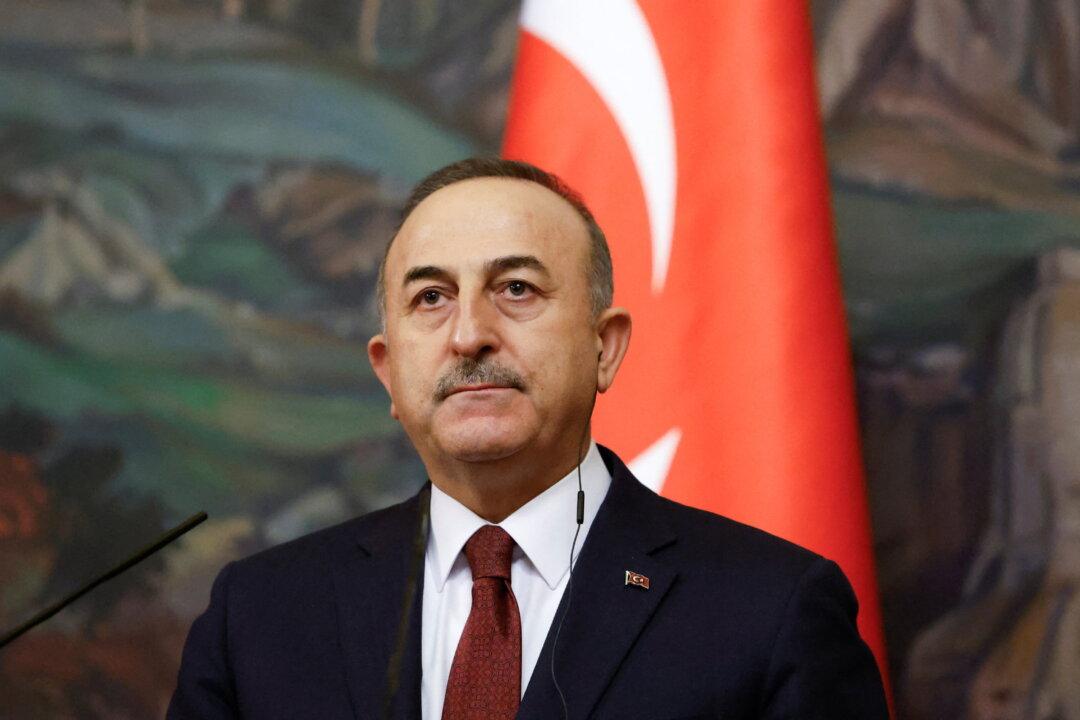A visit to Washington on Jan. 18 by Turkish Foreign Minister Mevlut Cavusoglu, during which he met U.S. counterpart Secretary of State Antony Blinken, served to highlight the complex relationship between the NATO allies.
At the meeting, both men reaffirmed their “longstanding commitment to collective defense as [NATO] allies,” according to a joint statement released afterward.





